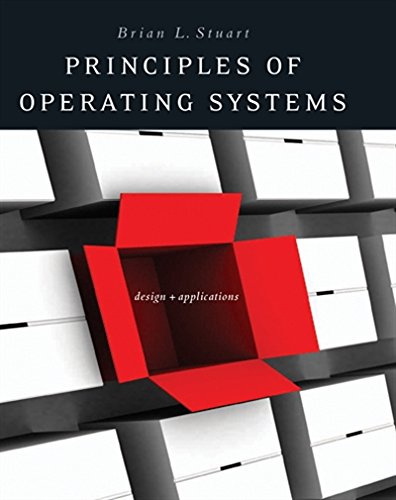Top products from r/osdev
We found 9 product mentions on r/osdev. We ranked the 9 resulting products by number of redditors who mentioned them. Here are the top 20.
1. Computer Organization and Design: The Hardware/Software Interface (The Morgan Kaufmann Series in Computer Architecture and Design)
Sentiment score: 0
Number of reviews: 1
 Show Reddit reviews
Show Reddit reviews2. Operating Systems Design and Implementation (3rd Edition)
Sentiment score: 1
Number of reviews: 1
 Show Reddit reviews
Show Reddit reviews5. The Design and Implementation of the FreeBSD Operating System (2nd Edition)
Sentiment score: 0
Number of reviews: 1
Addison-Wesley Professional
 Show Reddit reviews
Show Reddit reviews6. Operating System Concepts, Seventh Edition
Sentiment score: 0
Number of reviews: 1
 Show Reddit reviews
Show Reddit reviews




For the nitty-gritty details, the OSDev wiki is very helpful.
This tutorial on writing an OS in Rust was pretty useful when starting out with the bare-bones basics of a 64-bit kernel. The OSDev wiki tutorials can some times be out-of-date on some things, so this was a useful resource.
For the more higher-level concepts, a standard OS textbook should do. I used the Silberchatz "dinosaur book" in my OS class, and it's fine, but I definitely felt like it focused on the higher-level concepts with an omission of lower-level implementation details.
On the other hand, there is something of a whole "subgenre" of OS books that cover one OS kernel in excruciating, often line-by-line detail, which can be very useful for seeing how to apply those concepts from the higher-level textbooks. The "original" in this subgenre was John Lions's commentary on sixth edition UNIX from the 1970s. Some of the low-level hardware concepts apply to the PDP-11 back in the day, but a lot of the details are still applicable today. There's also the xv6 kernel teaching kernel from MIT, which is just the sixth edition UNIX re-implemented for x86 processors, with an accompanying book/commentary. Some other books in this genre I've read are Notes on the Plan 9 Third Edition Kernel Source (non-ideal) or the one a professor at my university wrote, Principles of Operating Systems, which covers Linux and the Inferno operating system.
Hopefully that gives some useful places to start.
The Design of the Unix Operating System is a classic. It's from the 80's, but still plenty relevant. It's very well written, with plenty of diagrams to help you along.
It doesn't quite start from the very beginning. If you're looking for information on how to start with absolutely nothing (ie, write a bootloader, implement basic device drivers, etc), then you'll need to supplement with other sources. It does, however, do a really great job of explaining things like processes, threads, memory management, and other basic concepts. It doesn't give you source code (though it contains a bit of pseudocode), but it explains in succinct, legible prose, the data structures and algorithms that drive core functionality. Again, it's an old book - $6.00 plus shipping used. Can't really go wrong.
Operating Systems Design and Implementation covers basically the same ground. I prefer the former, as it treats you a little more like an adult and skips straight to explaining how concepts are implemented (and the cover art is just so undeniably classic).
https://www.amazon.com/Computer-Organization-Design-Fourth-Architecture/dp/0123747503
I thought this book was quite good. It also answers everything you've asked in this thread.
The source in the littleosbook builds on itself each chapter. However, it's important to know that the littleosbook, osdev wiki and most online resources aren't necessarily "tutorials" after the bootloader and bare-bones stages. Any later information is going to be more abstract and guidance. If you need in depth assistance with osdev, you'll want to invest in one (or more) of the following:
And a lot of your personal time.
So there's this book called The Linux Programming Interface by Michael Kerrisk. Some consider it being the book.
Modern Operating Systems. the 4th edition was release in March 2014.
http://www.amazon.com/Modern-Operating-Systems-4th-Edition/dp/013359162X